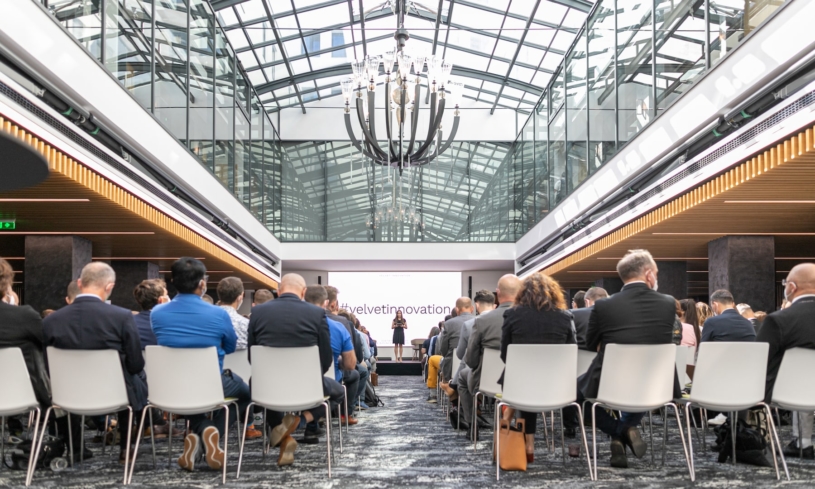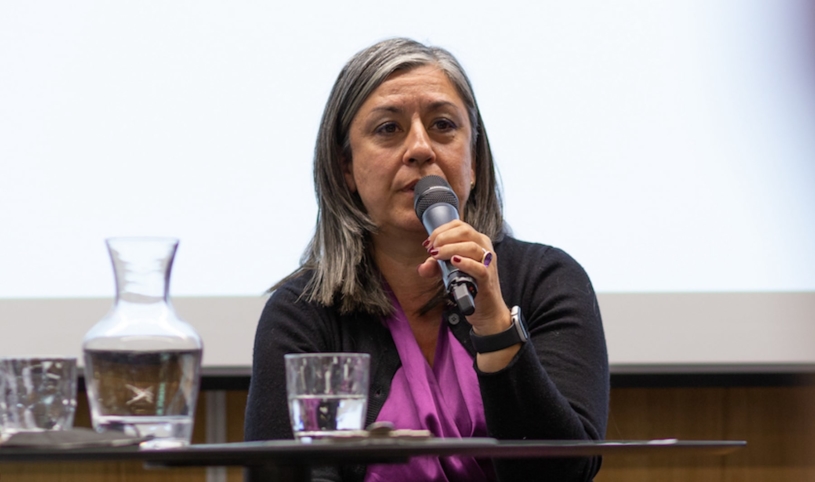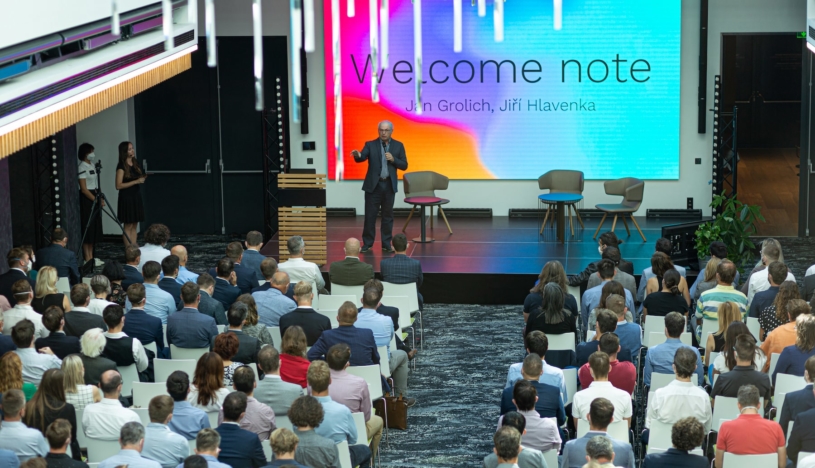There are several types of investors. The more conservative ones purely aim at return and minimize the risk, the more progressive ones try, for example, not to invest in industries that are harmful to humanity or the planet. The so-called impact investors, or investors with impact, take this thinking a step further and, on the contrary, give their money to companies whose DNA itself is to help the planet. One of them is Petr Vítek, co-founder of the Czech fund Tilia Impact Ventures
Vítek spoke about his activities recently at the first year of the Velvet Innovation conference in Brno. It focused on the business opportunities that the topic of sustainability as such brings. The event was organized by the South Moravian Innovation Center (JIC) with the support of other institutions and companies. CzechCrunch was a media partner.
“We believe that impact investing is not only the future of all investments, but also the future of making any decisions,” Vítek said in his presentation. This is one of the reasons why an investment company was established under his leadership, in which twenty Czech, mostly angelic investors invested money.
The first year of the Velvet Innovation conference
Photo: Velvet Innovation / JIC
The Tilia Impact Ventures Fund is one of the first of its kind in Central Europe, but Vítek still has reason to be optimistic. Unlike philanthropy, impact investors do not give grants, but count on returns. As he mentioned, there are several factors that play such card investments:
First, there is the self-regulation of large investment players. Hedge funds and major individual investors are gradually promising ever-increasing commitments to invest in companies that meet the goals of sustainable development. Secondly, market trends are gradually being counteracted by regulations such as the Green Deal within the European Union.
There are thousands of lawsuits around the world from nonprofits against corporations or states for not doing enough to fight climate change. For example, a Dutch court recently gave Shell a specific order to reduce emissions, “ described Vítek at the conference
However, investing in green initiatives also has its risks. Vítek and his colleagues are therefore careful to avoid companies that pretend to have a positive impact on the planet because of good PR, but really work non-ecologically. The term greenwashing has been adopted for this practice. In order for the project to be interesting for Tilia Ventures investors, on the contrary, according to Vítek, it must have an impact from the beginning, not just as a by-product of his business (which is also the case for many companies).
Vienna as a sustainable city of the future
Maria Vassilakou, the former deputy mayor of Vienna, also knows that empty buzzwords may not mean anything in practice. In her case, it was the concept of smart city, or smart city, which she tried to materialize in the broadest sense. In many ways she succeeded, so she also talked about her experiences at the Brno conference. According to Vassilakou, this concept means for many legislators only the implementation of technologies, but they are only one piece of the puzzle.
Maria Vassilakou, former deputy mayor Vienna
Photo: Velvet Innovation / JIC
„ Many cities have smart technology-driven strategy. Some cities also include social aspects. But it is only Vienna that combines the quality of life of the population with ecological aspects, technology, technology and innovation , “said the former deputy mayor in an interview with the JIC.
Areas that can be cleverly improve, there are many in cities. For example, people in Vienna can use the dense networks of cheap public transport or social housing, in which more than 60% of the population lives. These are not austere hostels. An example of a project that Vassilakou says is very “smart” is Danube Island. The 21-kilometer-long island in the middle of the Danube has remained purposefully undeveloped, and today it is a prized recreational zone. a project called Seestadt Aspern . It is a hypermodern district, which is currently being built on the edge of the Austrian capital. It will become a kind of laboratory of smart technologies and modern planning.
Investor Jiří Hlavenka at the Velvet Innovation conference
Photo: Velvet Innovation / JIC
Part of urban planning also There is, of course, transport, and the Velvet Innovation conference also focused on its sustainable future in cities. Not to mention that by 2050, according to the United Nations, 70% of the human population will live in urban areas. And when it comes to urban transport today, the emerging trend is almost exclusively electric means of transport. “In Vienna, we are pushing for the future of electric cars to be in shared electric cars. The question for everyone remains where to put the charging station. There is no will to put them in public space, but they simply have to be there, “ Maria Vassilakou warns.
Among other speakers at this year’s Velvet Innovation conference with the subtitle . ) Sustainability as a business opportunity was introduced, for example, by David Pavlík from a logistics startup Shipmonk , Cyril Klepek from the online waste market Cyrkl or investor and South Moravian representative Jiří Hlavenka. All lectures and panel discussions are available from the recording on the conference website .
Note: This article have been indexed to our site. We do not claim ownership or copyright of any of the content above. To see the article at original source Click Here














